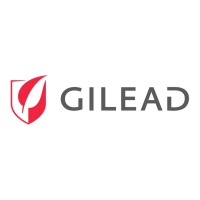Gilead Sciences (GILD) Reports Tecartus Car T-cell Therapy Demonstrates Strong Overall Survival Rates and Continued Durable Responses in Long-Term Follow-Up

Get Alerts GILD Hot Sheet
Join SI Premium – FREE
Kite, a Gilead Company (Nasdaq: GILD), today announced longer-term follow-up results from two pivotal studies of the CAR T-cell therapy Tecartus® (brexucabtagene autoleucel). The three-year follow-up of ZUMA-2, a Phase 2 global, multi-center study evaluating the efficacy of Tecartus in patients with relapsed/refractory (R/R) mantle cell lymphoma (MCL), and two-year follow-up of ZUMA-3, a global, multi-center, single-arm, open-label Phase 1/2 study evaluating Tecartus in adult patients (≥18 years old) with R/R B-cell acute lymphoblastic leukemia (B-ALL) were both presented today during a poster session at the 2022 American Society of Clinical Oncology (ASCO) Annual Meeting (Abstracts #7518 and #7010). Three-year follow-up data from ZUMA-2 were also simultaneously published in ASCO’s Journal of Clinical Oncology.
“We are very encouraged by the totality of these data, which suggest a significant and sustained response with Tecartus for people living with difficult-to-treat blood cancers like MCL and B-ALL,” said Frank Neumann, MD, PhD, SVP & Global Head of Clinical Development, Kite. “These longer-term results add to the growing maturity of data on Kite’s CAR T-cell therapies.”
At nearly three years of follow-up (median 35.6 months) in the ZUMA-2 trial, the overall response rate (ORR) was 91%, with 68% of treated patients achieving a complete response (CR; 95% CI, 55.2–78.5). The median duration of response (DOR) was 28.2 months, with 37% of treated patients in ongoing response at data cut-off. Median overall survival (OS) among treated patients was 46.6 months. Among those patients who achieved a CR, the median OS has not yet been reached (30-month OS rate was 60.3%). Late relapse, classified as more than 24 months post-infusion, was infrequent (n=3).
“There remains a significant need among patients living with MCL for therapies that provide a long-term response, as many patients have high-risk disease that is more likely to relapse or progress following multiple lines of treatment,” said Michael Wang, MD, ZUMA-2 Lead Investigator and Puddin Clarke Endowed Professor, Department of Lymphoma and Myeloma, Division of Cancer Medicine at The University of Texas MD Anderson Cancer Center. “The three-year data from ZUMA-2 represent the longest follow-up for a CAR T-cell therapy in MCL patients to date and are impressive in their demonstration of brexu-cel to elicit durable long-term responses.”
In the ZUMA-3 trial, longer follow-up of the pivotal analysis and outcomes of a newly-conducted larger pooled analysis of Phase 1 and 2 patients by independent review who received the pivotal dose of Tecartus were reported. Most patients in the analysis were heavily pre-treated, with a median of two prior therapies, and 47% had received three or more prior therapies. At a median follow-up of 29.7 months for pooled Phase 1 and 2 patients, 73.1% of treated patients achieved a CR or CR with incomplete hematological recovery (CRi). Median OS was 25.4 months for both Phase 2 treated patients and pooled Phase 1 and 2 treated patients. At data cutoff, median OS had not yet been reached in Phase 2 patients who achieved a CR. Similar outcomes among Phase 2 treated patients (n=55) and the pooled analysis of Phase 1 and 2 patients (n=78) were observed.
“With two years of follow-up and an expanded data set in ZUMA-3 in a heavily pre-treated patient population, we’ve observed a high durable response rate, with the majority of the responses associated with undetectable minimal residual disease following treatment with brexu-cel,” said Bijal Shah, MD, ZUMA-3 investigator and medical oncologist, Moffitt Cancer Center, Tampa, Florida. “For adult patients with B-ALL, this is a marked improvement relative to historical standards of care, so these treatment results are particularly important.”
Across both trials, no new safety signal has been observed in this extended follow-up period. In ZUMA-2, 3% of treatment-emergent adverse events (AEs) of interest occurred since the primary report. The most frequent Grade ≥3 AE was neutropenia (1 [1%] Grade 3; 7 [10%] Grade 4). Two patients had treatment-related Grade 3 serious infections, pneumonia and upper respiratory tract infection (n=1) and influenza (n=1). There were no new cytokine release syndrome (CRS) AEs. In ZUMA-3, no new-onset CRS, neurological events, infections, or hypogammaglobulinemia of any grade have occurred since the Phase 2 primary analysis. One new Grade 5 AE has occurred since the primary analysis (graft-versus-host disease; deemed not treatment-related).
Tecartus is currently approved for the treatment of relapsed or refractory MCL, as the first and only CAR T-cell therapy to receive accelerated approval from the U.S. Food and Drug Administration (FDA) in this indication. Tecartus is also approved for relapsed or refractory B-cell ALL, as the first and only CAR T-cell therapy approved for adults (≥18 years old) with ALL. The Tecartus U.S. Prescribing Information has a Boxed Warning in its product label regarding the risks of CRS and neurologic toxicities, and Tecartus is approved with a risk evaluation and mitigation strategy (REMS) due to these risks; see below for Indication and Important Safety Information.
Serious News for Serious Traders! Try StreetInsider.com Premium Free!
You May Also Be Interested In
- AstraZeneca (AZN) Announces Voydeya Approval in EU as add-on to ravulizumab or eculizumab
- Adicet Bio (ACET) Highlights Preclinical Data Supporting IND Readiness for ADI-270 in an Oral Presentation
- Lantern Pharma (LTRN) Receives Regulatory Approval to Expand Harmonic™ Clinical Trial for Non-Small Cell Lung Cancer in Never-Smokers into Japan and Taiwan
Create E-mail Alert Related Categories
Corporate News, FDARelated Entities
Twitter, FDASign up for StreetInsider Free!
Receive full access to all new and archived articles, unlimited portfolio tracking, e-mail alerts, custom newswires and RSS feeds - and more!



 Tweet
Tweet Share
Share